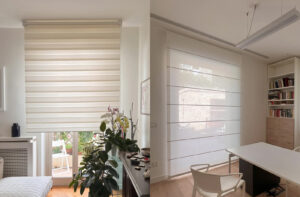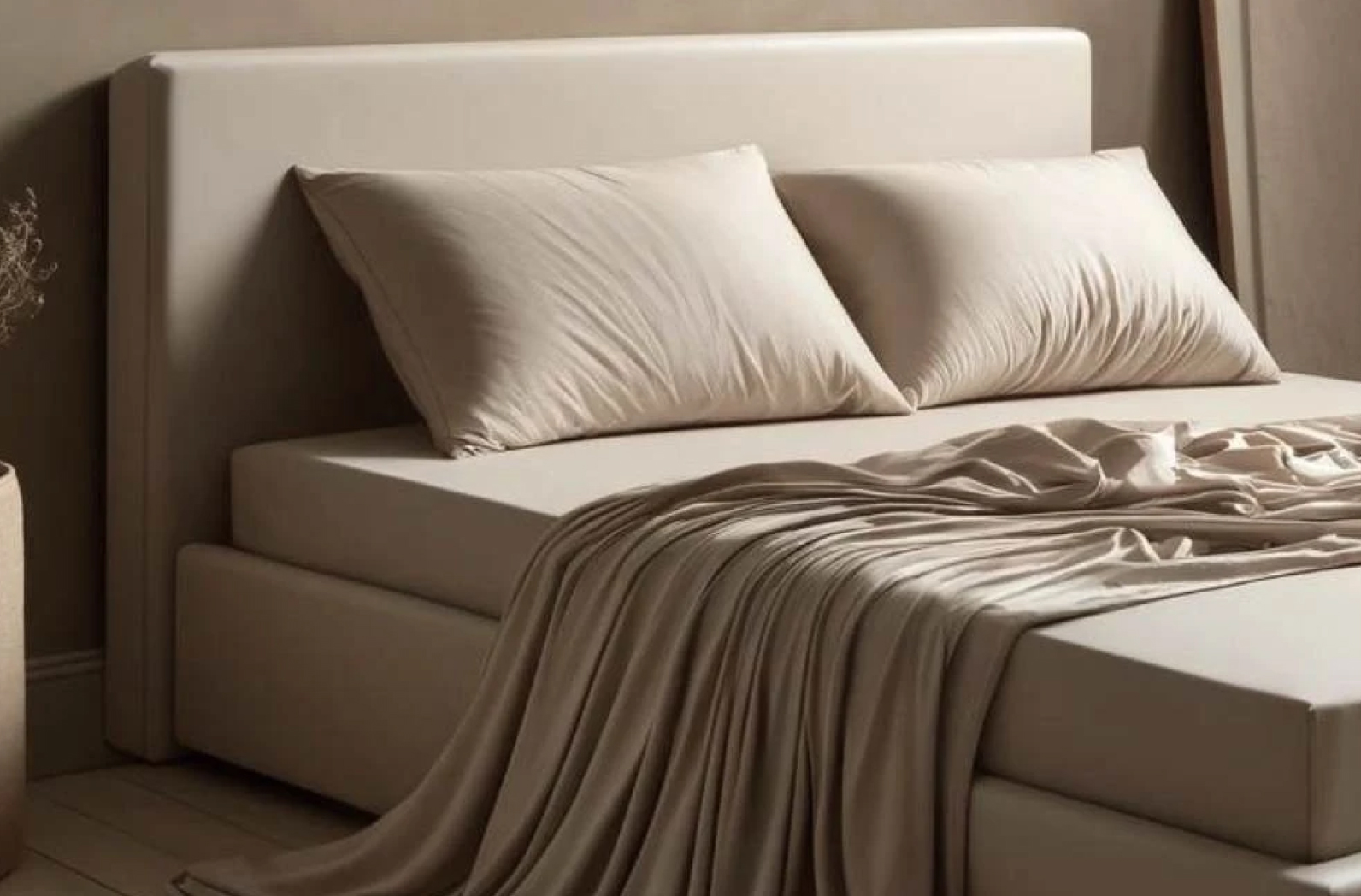
What’s the Best Material for Bed Sheets? The Ultimate Guide to a Perfect Night’s Sleep

Sleeping poorly because of uncomfortable sheets is a common — and often underestimated — problem.
Irritated skin, night sweats, and annoying discomfort upon waking.
Low-quality fabrics can seriously affect your sleep quality, especially if chosen without considering the season or your skin’s needs. Too often, we rely on chance or just go for looks.
In this guide, you’ll discover the best materials for bed sheets — from 300TC cotton sateen to linen, including luxurious silk and the innovative Tencel, the eco-friendly natural fiber that’s revolutionizing bedding.
Choosing the Right Material: The Heart of Quality
Natural materials dominate the bedding industry for their breathability, durability, and superior comfort. Avoiding synthetic fabrics — especially in summer — is now well-established advice. Preferences clearly favor:
- Cotton (percale, sateen, combed)
- Linen
- Silk
- Tencel (lyocell)
Each of these has its own unique properties.
Cotton: The Foundation of Quality
Cotton Percale: Cool and Durable
Cotton percale (80 threads/cm² and above) offers a cool, tightly woven, and durable fabric — ideal for the warmer seasons. Thanks to its dense and even weave:
- it keeps the body dry throughout the night;
- it withstands frequent washing;
- it offers a smooth and pleasant feel against the skin.
Cotton Sateen: Premium Quality Beyond 300TC
Cotton sateen with a thread count of at least 300 (300TC and above) is considered today’s premium choice:
- silky softness;
- exceptional durability;
- luxurious appearance with natural sheen;
- excellent temperature regulation: warm in winter and cool in summer.
A 400TC or 600TC cotton sateen is the ultimate choice for those seeking a long-lasting, luxurious, and enveloping sleep experience.
Linen: Natural, Breathable, and Long-Lasting
Linen is loved for its incredible temperature-regulating properties:
- cool in summer, warm in winter;
- absorbs moisture without retaining sweat;
- naturally antibacterial and hypoallergenic;
- extremely long-lasting over time.
perfect for those who suffer from night sweats and appreciate a natural yet elegant look.
Silk: Pure Luxury for Unmatched Comfort
Silk is considered the most luxurious material for bed sheets:
- unsurpassed softness;
- hypoallergenic and ideal for sensitive skin;
- helps maintain a consistent body temperature;
- prevents the formation of wrinkles and skin dehydration.
However, it requires special care when washing and comes at a higher cost.
Tencel (Lyocell): The Eco-Friendly Innovation That Mimics Silk
More and more users are choosing Tencel (derived from wood cellulose, primarily eucalyptus) for its outstanding features:
- silk-like softness;
- excellent breathability;
- absorbs and wicks away moisture better than cotton;
- eco-friendly: sustainably produced with low environmental impact;
- naturally antibacterial.
It’s an excellent choice for those seeking eco-friendly comfort and long-term performance, with a very competitive quality-to-price ratio.
Choosing Bed Sheets According to the Season
Summer: Freshness and Lightness
- Cotton Percale 80–200TC
- Linen
- Tencel
- Silk for Those Seeking Freshness and Luxury
Winter: Warmth and Comfort
- Cotton Sateen 300TC and above
- Cotton Flannel
- Fleece
- Silk (for perfect heat regulation)
Key Factors in Choosing Bed Sheets
- Natural material (cotton, linen, silk, Tencel);
- High thread count (300TC+ for cotton sateen);
- Thermal regulation according to the season;
- Hypoallergenic properties for sensitive skin;
- Ease of washing and long-term durability.
Conclusion
Investing in high-quality bed sheets means treating yourself to a superior wellness experience every night. Recent user research shows that 300TC+ cotton sateen, linen, silk, and modern Tencel are among the most appreciated choices today. Choose the material that best suits your needs with awareness—your rest deserves the very best.
FAQ
- Why Is 300TC Cotton Sateen So Highly Sought After?
Because it offers silky softness, exceptional durability, and excellent temperature regulation, making it suitable for all seasons. - Is Linen Suitable for Winter Too?
Yes, linen is naturally temperature-regulating: cool in summer and comfortable in winter, thanks to its ability to absorb and release moisture. - Is Tencel Truly Eco-Friendly?
Yes, Tencel is produced through a low-impact, environmentally friendly process and is derived from regenerated wood cellulose, often from eucalyptus. - Does Silk Require Special Care?
Yes, it should be washed using delicate or hand-wash cycles, preferably at low temperatures and with detergents specifically formulated for silk. - What Is the Best Choice for People with Allergies?
Tencel, linen, and combed cotton are naturally hypoallergenic and antibacterial, making them ideal for sensitive skin.



